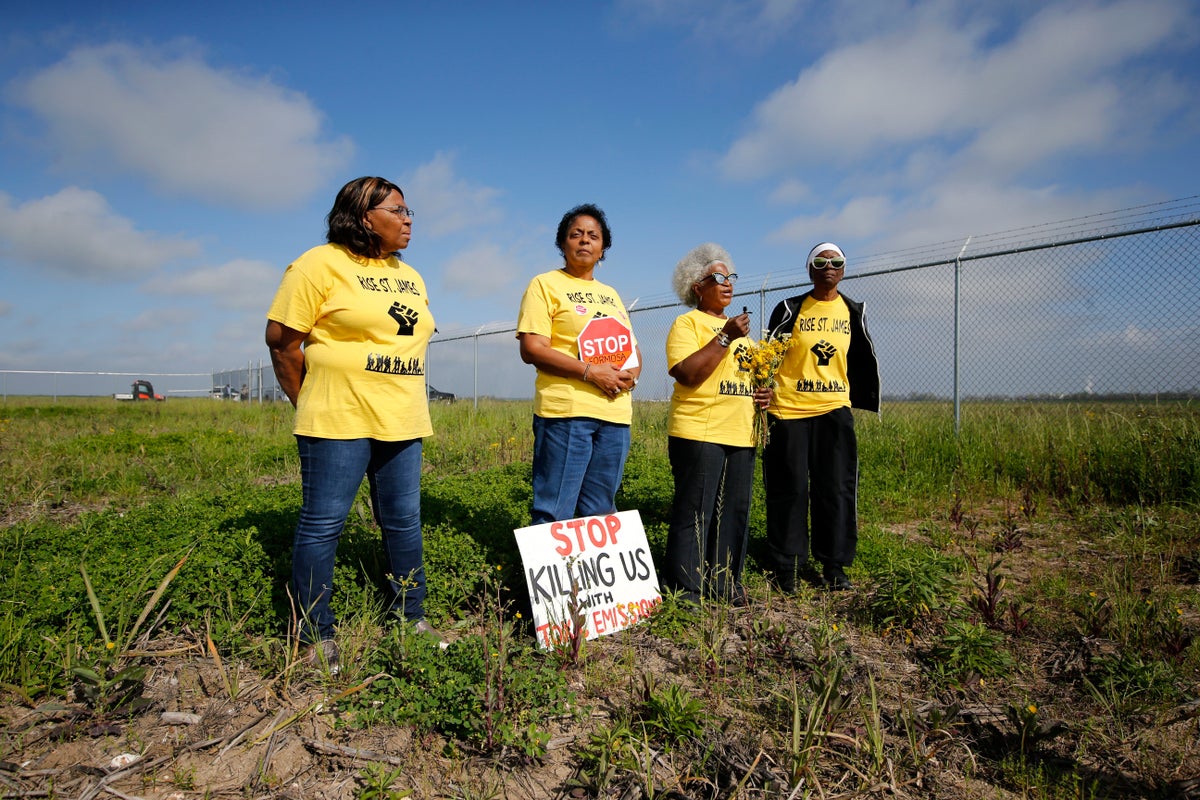Laws that support environmental racism in the Louisiana parish authorized to proceed, says the Federal Court


A lawsuit for civil rights that supports a parish of the southern Louisiana engaged in racist policies for the use of soil by putting polluting industries in the black communities by majority can go on, states a federal appeal court.
Thursday, the 5th Court of Appeal of the United States circuit in New Orleans He established that a trio of faith groups based on faith could proceed with a legal cause in the field of racial discrimination in petrochemical construction in the parish of St. James, a region in the heart of the strongly industrialized chemical corridor of Louisiana. It is often defined by environmental groups such as “Vicolo del Cancer” for its high levels of pollution.
The cause asks for a moratorium on the construction and expansion of petrochemical plants in the parish of St. James. When the cause was intended in March 2023, 20 of the 24 industrial structures were in two sections of the parish with black majority populations.
The United States environmental protection agency discovered in a 2003 report that the parish of St. James ranked higher than the national average for some cancer deaths. Both black majority sections of the parish are classified with a high risk of cancer from toxic pollutants according to an APA screening tool based on emissions reported by nearby structures, observes the cause.
“We played the alarm for too long that a moratorium is needed to stop the expansion of any polluting industry in our neighborhoods, and too many lives were lost for cancer,” said Gail Leboeuf, resident of the permanent parish and co-founder of the inclusive Louisiana. It is a complaint in case.
The case will now return to the United States District Court in the eastern district of Louisiana, who previously established that the case had been presented too late by the inclusive Louisiana and other community groups because the accusations were focused on a 2014 parish terrestrial use plane.
But the Federal Court said that the complaint was filed in time and observed that the case was “full of accusations of discriminatory decisions on the use of the territory” in the parish, of which the 2014 plan was only an example.
The Court also recognized that the groups had the right to sue the parish for the authorization of industrial development that “profane, destroys and limits access” to the cemeteries of their ancestors slavered to the parish. Many of the petrochemical structures in Louisiana are built on former plantations and few slave burial sites have been preserved.
“I think it is a real claim of their struggle,” said Pamela Spees, a lawyer with the center of constitutional rights that represent the complaints. “This is a case on long ongoing discrimination and now we can face the statements about their merits.”
The parish of St. James did not immediately respond to a commentary request.
–
Brook is a body member for the Associated Press/Report for America Statehouse News Initiative. Report for America is a non -profit national service program that places journalists in local editorial offices to be reported on non -covered issues.
Follow Brook on the social platform x: @Jack_brook96.




